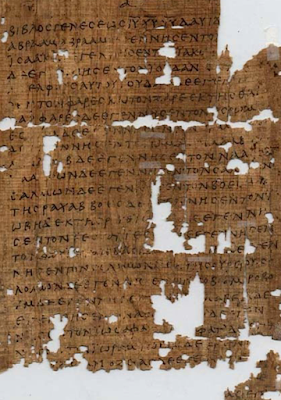One thing that the Armstrongist movement has always been good at is rewriting church history to fit its own narrative of how it is supposed to be. No one in the entire history of Christianity ever understood the history of the church and the Bible until Armstrong and his all-knowing minions hit the scene. Much of that so-called knowledge was a hodgepodge of church history and made-up beliefs that only Armstrongism could produce through the likes of Gerald Waterhouse, Dean Blackwell, Herman Hoeh, Raymond McNair, and a few others that set themselves up as authorities.
Who can forget the complete and utter failure of Herman Hoeh's Compendium of World History? Two columns of supposed history that was so appallingly bad and inaccurate that even Hoeh come out eventually and said it was wrong. Even Hoeh's A TRUE History of the TRUE CHURCH was found to be so full of errors that it was withdrawn and rewritten later as a still appallingly bad work of half fiction.
Never one to learn a lesson from the past, our Great Bwana to Africa and 100 Caucasians, the world's foremost historian and theologian, the highly esteemed and doubly blessed Robert Mzungu Thiel has made another bold statement about church history that is so far off the wall that one can only laugh at his sheer stupidity.
Most do not realize that the Church of God had the ‘chain of custody’ of the New Testament
Just this one sentence of his article is so wrong that it is laughable, especially considering how the churrrent Church of God movement has so little to do with so many books of the New Testament and particularly when it deals with the New Covenant. None is worse about that in COGland than Robert Mzungu Thiel.
He along with others in COGland believes that their lineage goes all the way back through the apostles to the feet of Jesus and then back to Moses and Abraham. The Great Bwana Bob Mzungu though claims his direct line of apostolic privilege goes directly back to the early apostles. That very same lineage means that he, the end-time prophet of God, the all-knowing one of Bible interpretation and scripture, is the sole possessor of truth established in the New Testament (a book which he incidentally refuses to follow).
As usual, he has to slam the Catholics for usurping his claims, the very people who are his first source to go to about anything.
The Catholic Encyclopedia article on the New Testament asserts the following:
The idea of a complete and clear-cut canon of the New Testament existing from the beginning, that is from Apostolic times, has no foundation in history. (Reid G. Canon of the New Testament. The Catholic Encyclopedia. Vol. 3., 1908)
The above is only true if one considers that the Vatican has always represented the true Christian church.
If, however, one believes the Bible and considers the fact that the Church of Rome was not dominating all of Christendom in the first and second centuries—which their own scholars recognize (Duffy E. Saints & Sinners: A History of the Popes. Yale University Press, New Haven, CT, 2002, pp.2,6; Sullivan F.A. From Apostles to Bishops: the development of the episcopacy in the early church. Newman Press, Mahwah, NJ, 2001, pp. 13-15,147)— then the idea that the true Christians’ Church knew the books from the beginning does have a foundation.
Yet, contemporary Protestant scholars often take the Roman Catholic view:
The canon of the NT, as commonly received at present, was ratified by the third council of Carthage (A.D. 397.) (Unger M. The New Unger’s Bible Dictionary. Moody Press, 2009, p. 204)
There are basic two views of the canon. While the last column reflects, to a significant degree, the major scholastic view today, the first column hopefully provides enough scriptural and historical information to show the honest inquirer that, yes, the Church of God had the canon from the beginning.
The entire span of Christianity has had the exact same books in use for over 1,900 years. There is nothing that Armstrongism or the Church of God movement ever preserved that wasn't already preserved and well known.
The true chain of custody for the Church of God has continued to hold the same books of the canon of scripture to this day.Because the Greco-Roman churches often included certain books they dropped and did not include others which they added, that would not be considered an unbroken chain of custody.Although Jesus taught that His church would be a “little flock” (Luke 12:32), most scholars ignore that and accept that the Greco-Romans (and later the Protestants) represent Christianity as a whole. So, they have tended to teach the Greco-Roman view as fact.Most have overlooked the true chain of custody. Part of the reason is that many aspects of church history have been misunderstood.
Deleted was the comment to write in for his booklet that "proves" the improperly named "continuing" Church of a lesser god are the modern-day descendants of the preservers of the Word.







 . Praying for you Mr Myers.
. Praying for you Mr Myers. in agreement
in agreement However....
However....
 The Holy Spirit doesn't control it guides.
The Holy Spirit doesn't control it guides.


